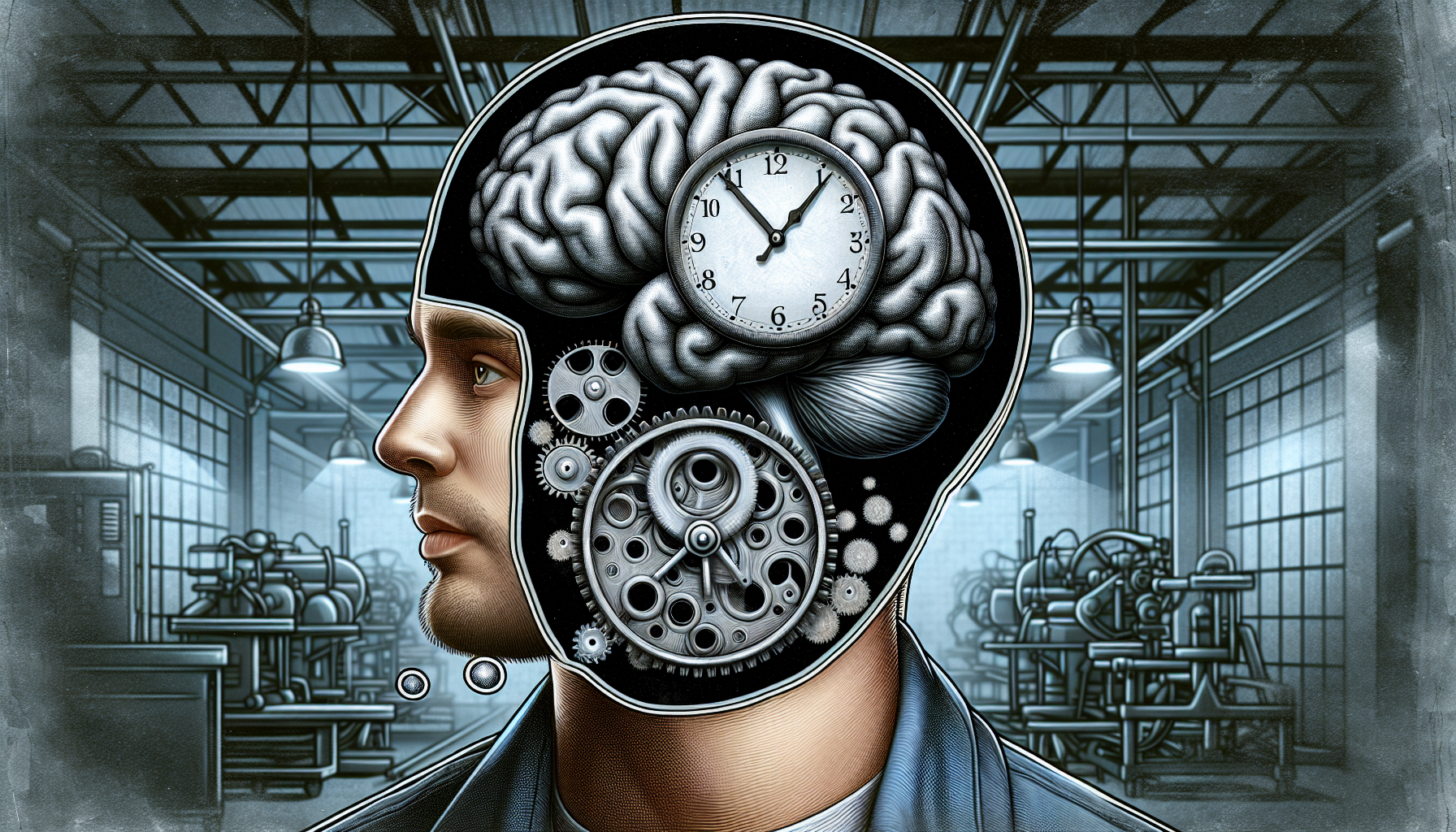Shift work, characterized by hours that are outside the traditional 9-to-5 schedule, can disrupt the body’s natural circadian rhythms, leading to sleep disturbances and other health challenges. This is particularly true for brain health, as cognitive functions are closely tied to sleep-wake cycles and overall neurological well-being. For the millions of individuals engaged in shift work, understanding and implementing strategies to maintain and enhance brain health is essential.
Understanding the Impact of Shift Work on Brain Health
The human brain is a complex organ that relies on regularity and rhythm for optimal performance. Shift work can lead to circadian misalignment, which occurs when there is a mismatch between the body’s internal clock and the external environment. This misalignment can have profound effects on brain function, including memory, attention, and processing speed. Additionally, it can exacerbate mood disorders and increase the risk of neurological conditions.
To comprehend the intricate relationship between shift work and brain health, visiting Avix Health’s Brain Health section provides a deep dive into the ways our brains are affected by our lifestyles and offers strategies to mitigate negative impacts.
Sleep and Shift Work: The Critical Connection
Quality sleep is one of the cornerstones of brain health, yet it is often compromised in shift workers. Inadequate sleep can lead to a decline in cognitive abilities and an increased risk of accidents and errors at work. Furthermore, chronic sleep disruption has been linked to long-term neurological issues, such as cognitive decline and an increased risk of dementia.
To combat these issues, shift workers should prioritize sleep hygiene. This includes creating a dark, quiet, and cool sleeping environment and establishing a regular pre-sleep routine that signals to the body it is time to wind down. Using tools like blackout curtains and white noise machines can also be helpful.
Dietary Considerations for Optimal Brain Function
Nutrition plays a pivotal role in maintaining brain health. Shift workers often face irregular meal patterns and may be more likely to consume fast food and high-sugar snacks for convenience, which can have detrimental effects on cognitive performance and overall health.
Incorporating a diet rich in antioxidants, healthy fats, and adequate protein can support brain function. Foods like blueberries, nuts, leafy greens, and fatty fish are excellent choices. For insights on how diet affects the brain, reading about Combating Brain Fog Through Diet and Lifestyle can provide valuable tips tailored to the needs of those with atypical work schedules.
Physical Activity: A Boost for Brain and Body
Exercise is a potent modulator of brain health, capable of enhancing cognitive function, improving mood, and even fostering new neuronal connections. Despite the challenges of finding time for regular exercise when working shifts, even short bouts of physical activity can be beneficial.
Shift workers should aim for at least 150 minutes of moderate-intensity exercise per week, as recommended by health authorities. This could include brisk walking, cycling, or any other form of exercise that increases heart rate and can be conveniently slotted into one’s schedule. For more information on the connection between exercise and cognitive health, exploring how Physical Exercise Promotes Mental Clarity and Focus can offer motivation and practical tips.
Mental Exercises to Sharpen the Mind
Just as physical activity keeps the body in shape, mental exercises can help maintain cognitive sharpness. Engaging in activities such as puzzles, reading, or learning a new skill can stimulate the brain and improve functions like memory and problem-solving.
For shift workers, incorporating mental exercises into their routine can be a fun and effective way to counteract some of the cognitive strains of their work patterns. The benefits of such activities are well-documented, including in resources like Crossword Puzzles and Brain Health: The Neurological Benefits.
Coping with Stress and Mental Strain
Shift work can be stressful, and chronic stress is known to have adverse effects on brain health. It is important for shift workers to develop coping mechanisms such as mindfulness, meditation, or deep-breathing exercises to manage stress levels.
There are numerous niche resources available that provide specific techniques and programs designed to help shift workers manage stress. For example, websites like ShiftWorkSleep.com offer tailored advice and solutions for improving sleep and reducing stress in shift workers.
Nurturing Social Connections
Social interaction is vital for mental well-being, yet shift work can often lead to isolation and a feeling of disconnection from friends and family. Maintaining social ties and ensuring quality time with loved ones is crucial for emotional support and stress relief.
The Role of Light Exposure
Proper light exposure is important for maintaining circadian rhythm. Shift workers should seek bright light during their "daytime," even if that is during the actual night, to help align their body’s internal clock. Conversely, avoiding bright light when it is time to sleep can aid in better rest. For an in-depth look at how light affects the brain, especially in the context of sleep patterns, one can refer to the effects of Blue Light on Brain Health and Sleep Patterns.
Continued Learning and Development
Continuous learning and personal development can help shift workers stay mentally agile and can even offset some of the negative impacts of shift work on the brain. Taking courses, pursuing hobbies, or learning new skills not only enriches life but also keeps the brain engaged and active.
Professional Support and Resources
Shift workers should not hesitate to seek professional support if they are struggling with sleep, stress, or other mental health issues. Healthcare providers can offer guidance, and there are also many specialized resources available online. For instance, ShiftWork Disorder Resources by the Sleep Foundation provides an array of articles and tips for managing the unique challenges faced by shift workers.
Conclusion
Shift work presents unique challenges to maintaining brain health, but with the right strategies, it is possible to mitigate many of the negative impacts. Prioritizing sleep, maintaining a healthy diet, staying physically and mentally active, managing stress, and nurturing social connections are all key components of a brain-healthy lifestyle for shift workers. By incorporating these strategies, along with seeking out niche resources and professional support when needed, shift workers can protect their brain health and enhance their quality of life.



